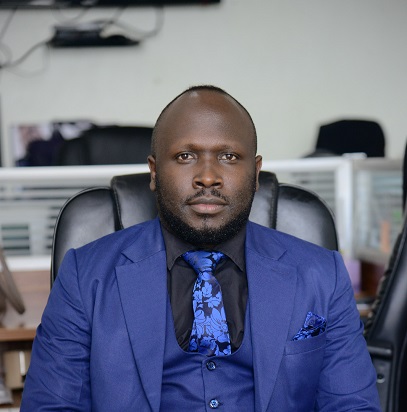By Denis Jjuuko
Coffee farmers are in a good place these days. Their good fortune is not abating any time soon with fair average quality prices for Robusta still selling above the Shs13,000 mark a kilogram. In July, Uganda exported coffee worth more than USD210 million. If this trend continues, Uganda will earn a whopping USD2.5 billion by the end of the financial year. There has never been a better time to be a coffee farmer.
But like all good things, there is a need to manage them. We recently heard a Member of Parliament from greater Masaka, a center of coffee growing in the country, crying out that prostitutes had invaded her area. The area is predominantly rural, where you would not easily expect to find them.
The MP said that some coffee farmers, mainly men, had even lost their lives to these ‘invaders.’ The ladies of the night wanted some of this coffee money and they were keen on getting it willy-nilly. It isn’t just people peddling their flesh though responsible for some of these deaths, thieves had also attacked some people who had just sold their coffee.
Although security agencies can easily deal with thieves, the challenge of how people manage their newly acquired wealth is always a challenge that needs to be addressed urgently.
In Kalangala, at the onset of oil palm growing, farmers faced similar challenges. So this isn’t something that is new.
When the campaign to grow coffee in Buganda started in 2016, the fair average quality price for Robusta was Shs5,000 on average. It was considered a good price prompting many people to heed the message being offered by the Kingdom of Buganda to grow coffee through their Mmwanyi Terimba campaign. The price is almost three times now, beating any commercial forecasts that may have been used to push the campaign.
Although costs of inputs such as fertilizers and labour have increased over the last eight years, the money farmers are getting is still good. Many farmers are turning a profit. Even those who are not, when they sell their beans, they receive a substantial amount of money for their harvests.
Many such farmers have improved their lives. Better houses are being built. Others are changing the types of roofs on their houses and others are expanding them. For many, school fees for their children won’t be a bother anymore (even though some parents have reportedly stopped their children from attending school so they work as labourers). Some have diversified their incomes, starting wholesale and retail shops. And like many Ugandans, some farmers have built rentals to earn that passive income.
To ease their transport, they have bought bodas bodas and some pick up trucks. The infrastructure to dry the coffee has also improved.
Even with all those investments, coffee farmers are largely still cash liquid. And many lack the skills to manage ‘huge’ sums of money. That is why the MP I mentioned earlier was appealing that prostitutes that had invaded her constituency be roughed up and sent back to the city, where they had come from.
That would not solve the problem though. The farmer can simply jump on their newly acquired Bajaj and drive to the city a few kilometres away and “misbehave.” By the time they return to their farms, they would not have money to buy fertilizers and other inputs. The farms would then collapse.
It is not one way though. Women with increased incomes could also, like men, abandon their roles of being mothers and wives leading to broken families. However, these may not be as many as men since men overwhelmingly own the means of production.
Like all people experiencing a huge somewhat sudden surge in their incomes, there is a need to educate them on how to handle their newly acquired wealth. Financial literacy is largely lacking among some of the farmers yet there is no guarantee the prices will remain this high. The yields may also not always be high especially in these days of fluctuating weather patterns.
Farmers need to manage their money better so that they can use the opportunity of these prices to create lasting wealth not just for themselves but also for the generations after them.
The Uganda Coffee Development Authority could do this while partnering with other interested parties like the Kingdom of Buganda in the central region and financial institutions among others. The farmers can also collectively use the money to add value to coffee by owning milling plants, roasters or acquiring some of the assets in the coffee value chain.
The writer is a communication and visibility consultant. djjuuko@gmail.com






Nice one, I would suggest if this can be translated to selected local language because the information is very good to also a local farmer deep in the village with challenges to interpret English.